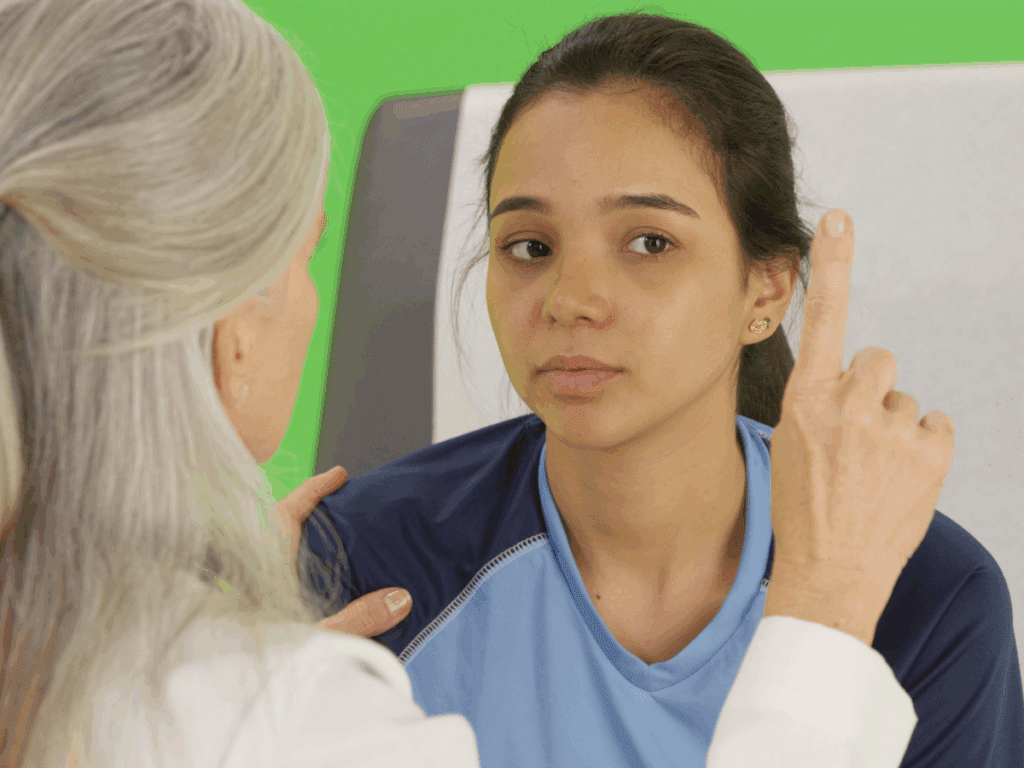Improving recognition and awareness of concussions
In Alberta, diagnosed concussions in children more than doubled between 2004–2018, reflecting both more injuries and greater awareness. With Concussion Awareness Week approaching, this is a reminder that understanding of concussions is improving, and, it’s important for parents, coaches, and sport leaders to keep learning how to recognize and respond to them.
Concussions in Sport: What Parents Need to Know About the Youngest Athletes

Each year in Canada, more than 200,000 athletes experience a concussion. The numbers are striking, and so is the fact that until recently, the youngest athletes were almost absent from research and public conversation about these injuries. Dr. Miriam Beauchamp is a professor at the University of Montreal, a researcher at Sainte-Justine Hospital, and Canada…
Tackling stress can help athletes recover from injuries faster
Experts reviewing 50 years of research found stress increases injury risk and slows recovery, while mindfulness and mental skills training, like goal setting and visualization, support faster healing and return to play. Protocols such as screening athletes for stress and connecting them with mental health support can help medical staff get athletes back to competition…
What do we know about sport-related concussions in athletes with disabilities?
Concussions and Confidence: Why Mental Readiness Matters in Recovery

For most of her career, Jen Kish was known as one of the best and most fearless female players in rugby sevens. She captained Canada’s women’s team to an Olympic bronze medal at the 2016 Rio Olympics. And, she also endured more than 30 concussions with only five of them formally diagnosed. “Your brain health…
Training, stress and injury risk in student-athletes
A recent Canadian study shows that training load isn’t the only factor influencing injury risk in university athletes. Stress from school, relationships, and mental health also play a big role. A more balanced, whole-person approach to training can help sport leaders better support athlete well-being and prevent injuries.
Preventing and treating heat illnesses in a warming climate
With an increasing number of heat waves happening across the country, you may be more likely to experience exertional heat stress during the summer months. This happens when physical activity increases heat production, surpassing the body’s cooling capacity. Sport participants should be monitored for signs of heat stress to prevent severe illness and heat stroke.
Riley VanDeHogen (vand6030@mylaurier.ca) @ 06/09/2025
Sports-related concussions (SRCs) represent a significant concern in football due to their complexity, long-term impacts, and high incidence rates. An injured athlete’s return to sport primarily focuses on the physical recovery, with psychosocial influences (e.g., fear of re-injury) often being overlooked. Factors such as social pressures, sports culture, and adherence to the sport ethic can…
Vitamin D in athletes
Vitamin D plays an important role in preventing musculoskeletal injuries. But according to recent research, many athletes are deficient in Vitamin D, especially in the winter. Spending time in the sun and consuming a diet rich in foods like fish and eggs are simple ways to increase Vitamin D intake. If you’re concerned about your…
Choosing the right running shoe
Running shoes can affect running performance and injury risk. Research shows that shoe drop, cushioning, stiffness, and weight needs to be considered based on the runner’s anatomy, gait, and training routine. To optimize running efficiency and minimize risk of injury, shoe biomechanics and individual needs must be considered.